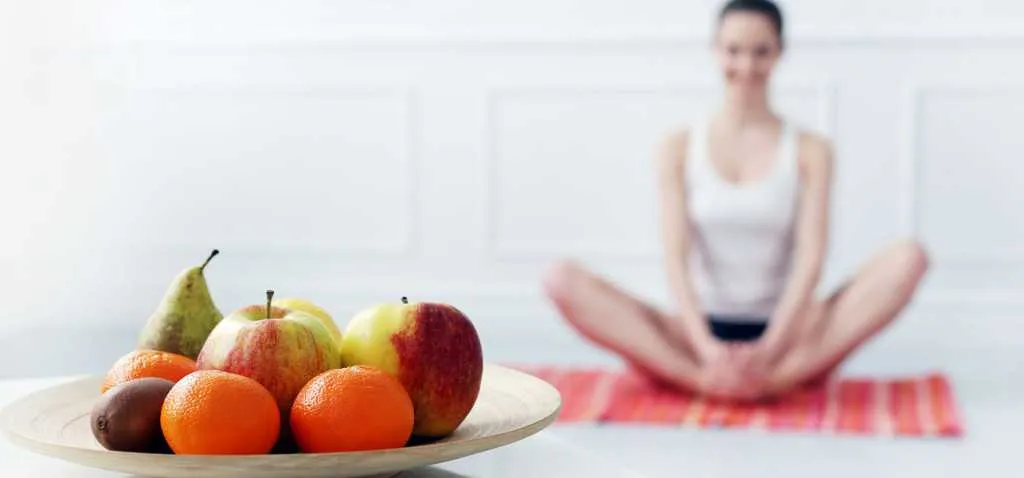Yoga is an ascetic discipline, which requires a lot of dedication. One of the main reasons people practice yoga is to lose weight and cut out the extra amount of fat in body. But do you know, your diet constitutes a major part in keeping your body fit and healthy even when you do yoga or any other exercise. What you eat throughout the day can ruin 60 minutes of your daily exercise. So let’s take a look at the kind of food suggested by the experts to eat before and after your yoga session.
Yoga is advised to be practiced on an empty stomach or there has to be a gap of at least 3-4 hours between you last meal and your yoga session. When you practice various yoga postures you are likely to turn and twist your body, which will not allow your last intake meal to digest meanwhile. As a result of which intestines will not be able to soak up the required amount of juices from your last meal. Longer the undigested food remains in your body it will make you feel unwieldy and you might not be able to carry out your practice with maximum efficiency. Therefore, practice either empty stomach or at least 3-4 hours after having your last meal so that you don’t have too much undigested food in your stomach. If you are few of those who cannot hold their hunger for too long and need to feed themselves after a few hours then you may want to have something which is easier to digest such as a glass of juice or milk. Fruits normally take about least 45 minutes to digest, so you can even have some fruits such as banana or an apple to keep you energy level up throughout the yoga session.
What to eat after yoga class
Since, your main goal is to reduce the fat content in your body and keep it fit and slim, you definitely not like to have something that contains too much fat. When we practice yoga, the fat gets drained out in form of sweat. And when you exude sweat, the water level of your body comes down simultaneously. Therefore you need to have at least 2 liters of water during the day to keep you energy level up. Studies have also proven that drinking too much water also restricts the amount of your daily calorie intake, resulting in weight loss.
Often beginners get into a perception that food is no longer a hindrance in losing weight since they have started taking yoga sessions. But your diet is as important as your daily exercise. If you eat too less, then your body will not be able to produce the required amount of energy to keep you going the whole day, and if you eat too much then your exercise can take as long as forever to help you trim your body. Therefore your diet has to be in perfect balance with your daily exercise. Avoid the food that contains too much fat or is fried in oil. And keep in mind the following things:
Increase the amount of protein intake
Protein is what gives you strength; repairs damaged tissues and build muscle tissues. To increase the protein intake drink milk, eat egg (the white portion), eat almonds, dried beans and peas, fish, peanuts, meat and seafood, walnuts. These foods can easily be included in your daily diet.
Alkalize your diet by having green vegetables and fruits: Alkaline increases the vitality, keeps our tissues flexible and removes acid content from our body, which also minimizes the chances of several diseases. Now to add alkaline to your daily diets eat raw food, fresh green leafy vegetables, and sprouts. Drink lime juice, have oranges, apples, pears, papaya, grapes, in short any fruit will work. Also add onion, garlic and ginger to your food and do not forget to eat cucumber which will ultimately increase the water content in your body as well.
These are a few tips to keep in mind while practicing yoga, to achieve better results and maximum benefits out of your daily yoga sessions. This diet plan will also help you lead a healthy life, with zero fear of gaining any more fat.
Recommended Posts For Yoga Beginners
Step By Step Guide Before Start Practising Yoga
Best Yoga Asanas to Lose Weight
Yoga for Reducing Weight and Increasing Stamina
Yoga vs Gym Which One is Better

